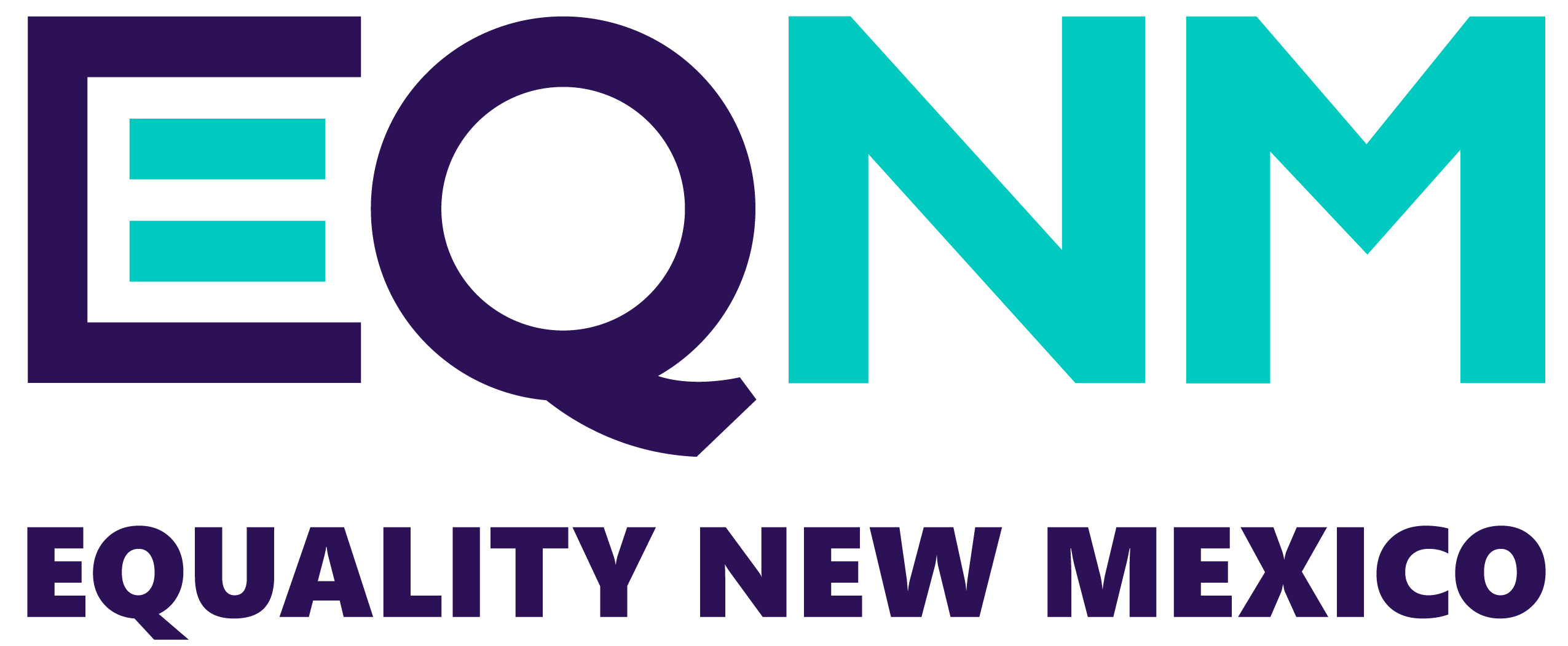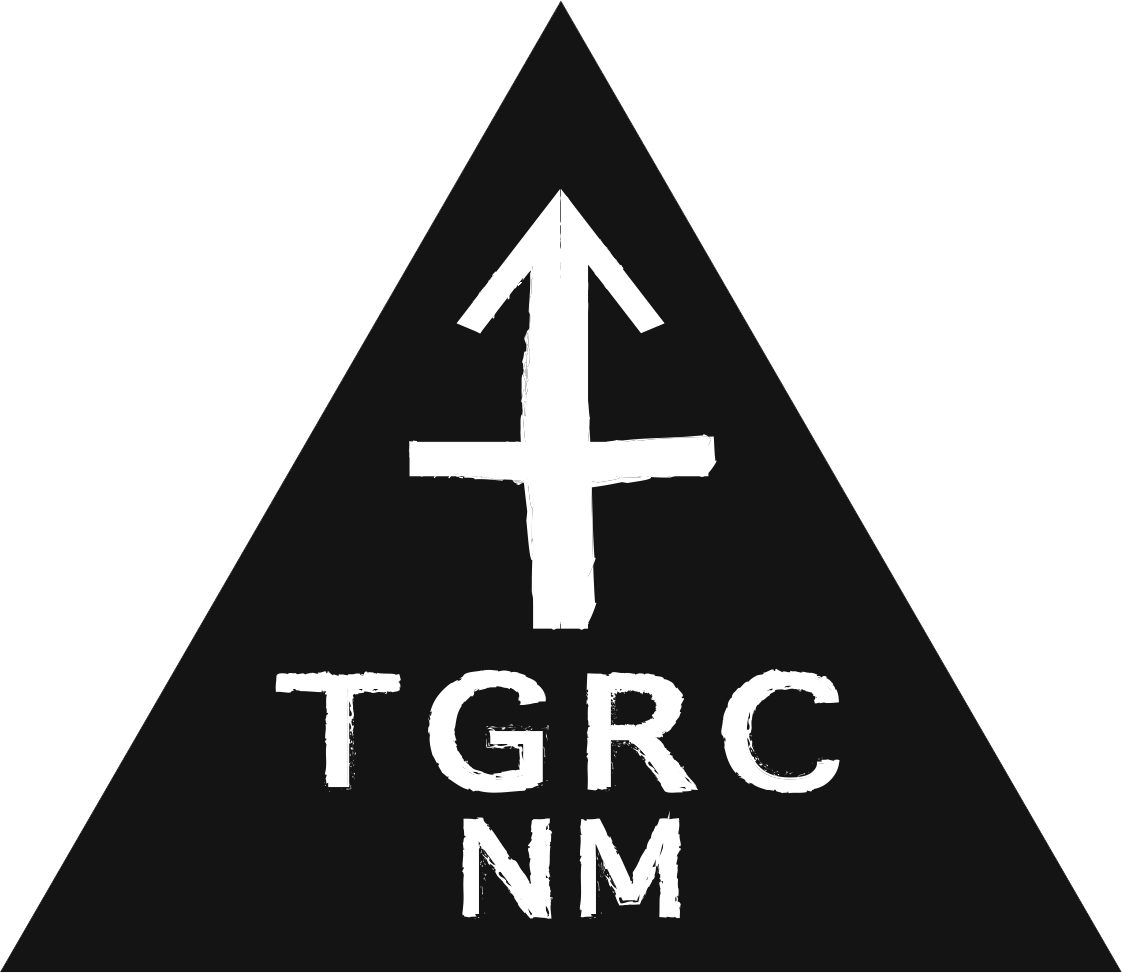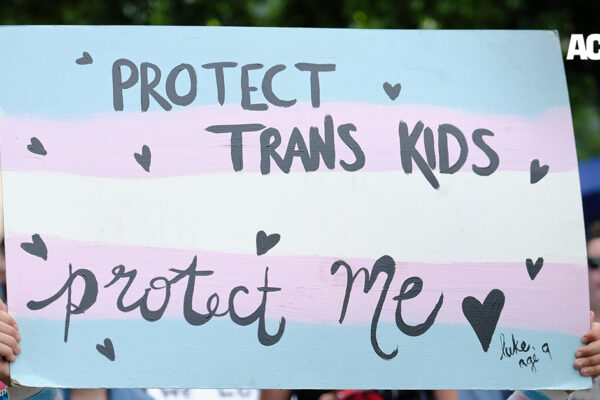NOTICE: This content is intended to serve as general information; it is not legal advice nor intended as legal advice. Each individual will need to do their own risk assessment for accessing care, particularly if accessing care while living in a state with bans or restrictions, and consult with a legal and/or medical professional for guidance.
Gender-affirming care is legal in New Mexico.
In New Mexico, the law defines "gender-affirming health care" as psychological, behavioral, surgical, pharmaceutical, and medical care, services and supplies provided to support an individual's gender identity.
A large part of supporting an individual’s gender includes things as simple as respecting pronouns and names. Gender-expansive, transgender, and gender-queer young people deserve safe and supportive environments to explore and affirm themselves.
Confidentiality and Consent:
Confidentiality protections and consent requirements for young people are closely linked but not perfectly matched. Generally, when young people may consent for their own health care they can expect confidentiality protection, but there are exceptions in both the law and in reality. Confidentiality is not always absolute.
One of the main exceptions to confidentiality is the requirement to report child abuse. In New Mexico, every person who knows or reasonably suspects that a child has been abused is required to make a report.
Additionally, the health care a young person receives will be included in their electronic medical record, which may or may not be accessible to their parent or guardian. If a young person uses insurance, an explanation of benefits (what health care was covered) might be sent to their insurance policyholder.
To learn more, check out Adolescent & Young Adult Health Care in New Mexico A Guide to Understanding Consent & Confidentiality Laws and Minors’ Consent for Health Care Services in New Mexico.
IMPORTANT! Are you traveling from a different state to access gender-affirming care in New Mexico?
New Mexico state laws and policies help protect your access to gender-affirming care. IMPORTANT! If you live in or travel to other states with different laws, you may have fewer protections or face different risks when you go home.
Before you come to New Mexico, contact organizations in your home state to ask them logistical questions and how to stay safe.
Here are resources about care, laws, bans and local organizations in your state:
- https://www.lgbtmap.org/equality-maps/healthcare/youth_medical_care_bans
- https://www.transgendermap.com/resources/usa/
Please note that resources like this are subject to change as our landscape changes.
Protections for people and their families accessing gender-affirming care in New Mexico:
- Public bodies in New Mexico (like schools, public health centers and hospitals) are not allowed to discriminate against you for accessing or receiving gender-affirming care. They also aren’t allowed to make it harder for you to get that care.
- Your private information is protected. Nobody is allowed to access or share information electronically about your gender-affirming care if they want to use it to get you in trouble or cause you or your family harm.
- If you are from somewhere else and authorities in your state ask New Mexico to help them investigate you or someone who helped you get gender-affirming care, New Mexico will follow our laws to protect that information.
What can I do if I feel like my right to gender-affirming care has been violated?
Asserting your rights can be challenging and overwhelming. Do what feels comfortable to you. If you think your rights have been violated, document everything you can about the incident. You can contact the ACLU using the legal complaint form on our website.
If you believe you have been discriminated against in a health care setting, you can file a complaint within 300 days of the most recent act of discrimination directly with the New Mexico Human Rights Bureau here: https://www.dws.state.nm.us/Human-Rights-Information
If you think a healthcare provider or facility has discriminated against you or someone else in violation of federal protections, you can file an online complaint with the Office of Civil Rights or send your complaint by email to [email protected].
FAQ
Q. I am not from New Mexico. What happens if I go to New Mexico to receive gender-affirming care and my home state finds out?
You have the right to travel to get medical care.
New Mexico will do everything in its power to protect your private information about gender-affirming care you get in New Mexico. However, we can’t control what other states do. Because every state is different, we recommend getting in touch with one of the organizations in your home state listed above to ask what things are like where you are from and how to stay safe.
Q. What protections are in place for my health care information?
Like many areas of law, this is complex, and we can’t address everything in this document; however, there are several protections in place.
Federal laws like HIPAA address the use and disclosure of individuals’ health information (known as protected health information or PHI) by entities subject to the Privacy Rule. These individuals and organizations are called “covered entities.” The Privacy Rule also contains standards for individuals’ rights to understand and control how their health information is used.
Local laws in New Mexico prohibit the government from sharing your information, especially if that information is going to be used to investigate you or a loved one accessing gender-affirming care. The law also protects against individuals or organizations sharing your protected health care information or discriminating against you.
Q. Can I take my meds with me if I travel to a different state?
Because every state is different, if you live in or travel to a state where gender-affirming care is more restricted, we recommend talking to your New Mexico provider as well as a local organization about specific questions about your home state and your individual risks.
It’s important to note that your insurance and electronic medical records will be updated and reflect the care you received at every health care provider - even care not received in your home state.
Q. How can I find a provider in New Mexico?
The Transgender Resource Center of New Mexico has a provider directory of providers whom the communities served by the Center recommend.
Provider Directory — Transgender Resource Center of New Mexico (tgrcnm.org)
Know Before You Go:
Before you go to a provider for gender-affirming care, ask questions to help understand their services and background. This can help ensure that you see a legitimate health care provider, not someone who may utilize “conversion therapy.”
“Conversion therapy” is prohibited in New Mexico.
Conversion therapies are interventions that try to change your sexual orientation or gender identity and ‘cure’ people from being LGBTQ+. This is the opposite of appropriate, affirming, and healthy therapy or counseling, which will support an individual who is exploring their sexual orientation or gender identity, whatever the outcome may be. The American Academy of Child and Adolescent Psychiatry asserts that such “conversion therapies” (or other interventions imposed to promote a particular sexual orientation and/or gender as a preferred outcome) lack scientific credibility and clinical utility. There is evidence that such interventions are harmful, and “conversion therapies” should not be part of any behavioral health treatment of children and adolescents. https://www.aacap.org/AACAP/Policy_Statements/2018/Conversion_Therapy.aspx
Questions to ask before receiving care:
- Call before you go in and ask about their services. Legitimate healthcare facilities will provide you with answers to your questions and will not pressure you to make an appointment.
- Do you have any LGBTQ-identified counselors, therapists, or other support staff?
- What certifications or training does your staff have to treat my needs?
- What has the provider’s experience been with treating LGBTQ people?
- How familiar is the program with LGBTQ resources in your community for continuing care plans?
- Is the staff aware of LGBTQ guidelines and how to treat transgender patients respectfully?
- Ask the provider what you will be allowed to consent to on your own and what will require a parent or guardian’s permission.
- Ask the provider what will be kept confidential what information might be shared, and with whom.
Make sure to check out reviews of the provider online!
Q. Will my insurance cover this care? (How to find coverage and financial aid options)
Virtually all major insurance companies recognize that gender-related medical care is medically necessary and have a written policy describing their criteria for plans to cover it. However, you must look into your specific individual plan/coverage to determine if specific gender-related care is covered or excluded.
The Transgender Legal Defense and Education Fund’s Trans Health Project has an insurance tutorial guide that can help you choose a plan, understand your current plan, apply for coverage, understand a denial, and appeal a denial.
Q. If I legally change my name in New Mexico, will other states accept it?
If you change your name in New Mexico through a formal legal process, your name change will be respected in any other state. If you change your name through a common law name change (when you change your name through usage without going to court or changing official documents), most states will not uphold this since it is not an official legal name change. Most federal agencies will not accept Common Law name changes so you must go through the formal court process.
In most cases, when you receive a formal petition to change your name, it will be public record. Some states may give you amended documents (such as new birth certificates) that may include your given name and your new name. You must be a New Mexico resident for at least six months and be 14 or older to change your name in New Mexico officially. New Mexico has no publication name change requirements as of June 2023.
Here is more information on how to change your name in New Mexico: ID Documents — Transgender Resource Center of New Mexico (tgrcnm.org)
Q. I’m a student in New Mexico. What information will be private at school, and what CAN be and what WILL be shared with my parents?
If you are worried about your safety or the confidentiality of your physical and mental health information at school, it is likely the safest and most secure to talk with a medical professional either at your School-Based Health Center or another healthcare provider off-campus. This resource can help you find an off-campus healthcare provider you can speak with about gender-affirming care: Provider Directory — Transgender Resource Center of New Mexico (tgrcnm.org)
School counselors, nurses, teachers and other staff have different rules about keeping your information confidential if your parents ask for it. School counselor records and information shared with teachers may be disclosed even if you don’t want it to be. HIPAA covers health care providers at School-Based Health Centers (SBHC). Your information is more likely to be confidential at an SBHC or another health care provider’s clinic outside of your school. However, if you use your parents' insurance, your parents may find out.
Your privacy rights at school sometimes differ from those outside of school. You likely have fewer privacy rights at school than outside of it. Whether or not information about you is kept confidential or shared with your parents depends on many factors.
Q. What are my privacy rights when getting gender-affirming care?
This depends on your age, the type of care you seek, and who you are talking to. There are also some things you might be able to consent to (give permission) depending on your age, but that doesn’t mean it will be kept confidential (private).
If you are 14 years or older, you do not need a parent or guardian’s permission to receive certain types of sensitive health care, like reproductive and mental health care. You can consent on your own to get therapy and counseling, and the information you discuss in these sessions will be confidential, even from your parents.
As long as you are over 14 years old, only you can give permission for that information to be shared with anyone. If you are under 14 years old, you can give permission to start therapy, but after 2 weeks, your parent/ guardian must give their permission in order for the therapy to continue. A person 14 years of age or older can consent to psychotropic medications like antidepressants or anti-anxiety medications on their own, but the doctor must notify the parent/guardian about this.
IMPORTANT! Even when a young person can consent (give permission) to health care services without a parent or guardian’s involvement, health care services might not be confidential (fully private). In many circumstances, a parent/ guardian may be required to give permission or be notified. Even when there are no such requirements, someone in your household could find out about the private services you are getting if you use your parent’s health insurance to pay for the services. Some family health care providers might also mention something to a parent without understanding that you did not want them to know.
If you want something to be kept especially private, talk to your health care provider about it and consider getting services at low-cost or free clinics.
Mandatory reporting:
If any person knows or has reasonable suspicion that a young person under the age of 18 is abused or neglected, they must report it. They may report it to the police, New Mexico Children Youth and Families Department, Tribal police, or social services. The report will be investigated, and this will affect the privacy of the young person and their family. While privacy is very important, it is most important to make sure that young people are safe. Additionally, someone under the age of 13 cannot legally consent to sexual activity. You absolutely should seek healthcare if you need it, but the healthcare provider will likely screen you for sexual assault and likely will have to report it. You can always ask questions about your privacy, medical options, and other resources.
Q. Do I have to tell a health care provider if I am undocumented?
No. You do not have to tell a health care provider your immigration status. You do not have to say if you are undocumented or that you do not have a social security number. If they ask you about insurance, tell the staff that you do not qualify for insurance or ask about self-pay options for patients.
Curious about your other student rights, LGBTQ+ rights, reproductive rights and more?
GLOSSARY:
- Gender affirming care
- o the law defines “gender-affirming health care" as psychological, behavioral, surgical, pharmaceutical and medical care, services and supplies provided to support an individual's gender identity
- HIPAA
- The Health Insurance Portability and Accountability Act of 1996 (HIPAA) is a federal law that requires the creation of national standards to protect sensitive patient health information from being disclosed without the patient's consent or knowledge. (Reminder: that while under 18 or on your parent’s insurance some information may not be fully private).
- Privacy Rule
- This falls under HIPAA- establishes, for the first time, a set of national standards for the protection of certain health information. A major goal of the Privacy Rule is to assure that individuals' health information is properly protected while allowing the flow of health information needed to provide and promote high-quality health care and to protect the public's health and well being
- Protected health activity
- Protected health activity in this context refers to gender-affirming care and reproductive health care in New Mexico.
- Informed Consent
- Informed consent is a process of communication between you and your health care provider that often leads to agreement or permission for care, treatment, or services. Every patient has the right to get information and ask questions before procedures and treatments
- Conversion therapy/ reparative therapy
- is a range of dangerous and discredited practices that falsely claim to change a person’s sexual orientation or gender identity or expression.
This content was produced in partnership with the Transgender Resource Center of New Mexico and Equality New Mexico.


Stay Informed
Sign up to be the first to hear about how to take action.
By completing this form, I agree to receive occasional emails per the terms of the ACLU’s privacy statement.
By completing this form, I agree to receive occasional emails per the terms of the ACLU’s privacy statement.

